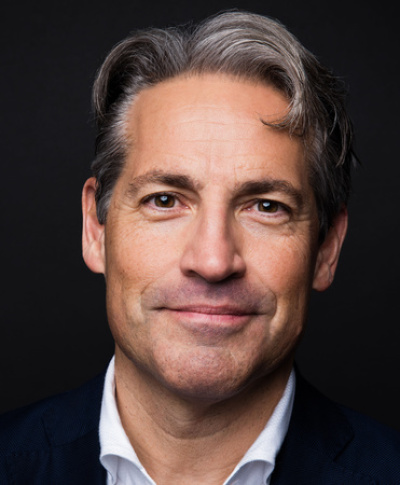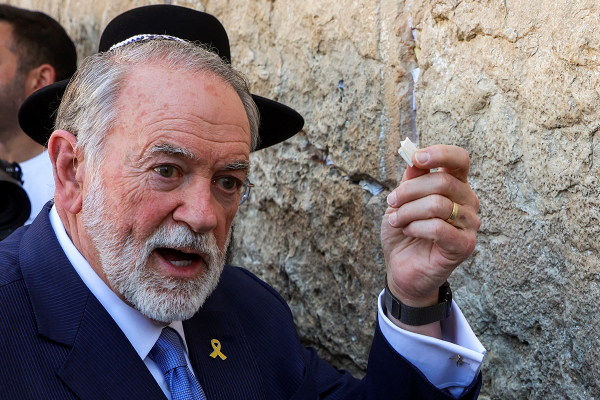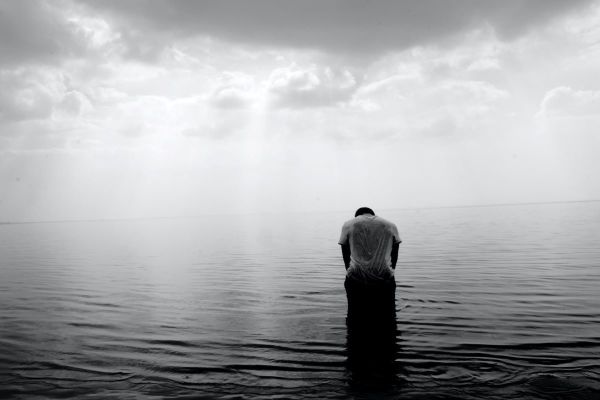The Enlightenment Got It Wrong: The West's Debt to Christianity

It's a rock-solid Western conviction: All men—and women—are created equal. But where does it come from? Well, not the Enlightenment.
Few modern historians have done more to educate the public about the ancient and classical world than Tom Holland. His 2004 book, "Rubicon: The Last Years of the Roman Republic," won the prestigious Hessell-Tiltman prize, which is awarded to history books of "high literary merit."
Subsequent books about the rise of the Persian Empire and the rise of Islam have received similar accolades. Put simply, when it comes to the ancient world, Holland knows his stuff, and no one doubts it.
That's why it's wise to pay attention to what he has to say about how the coming of Christianity, and in particular the writings of St. Paul, shaped our world.
Writing in the storied British literary and political journal, the New Statesman, Holland told readers how the Christianity of his childhood gave way to an obsession with ancient empires. "When I read the Bible," Holland wrote, "the focus of my fascination was less the children of Israel or Jesus and his disciples than their adversaries: the Egyptians, the Assyrians, the Romans."
While he "vaguely continued to believe in God, [Holland] found Him infinitely less charismatic than [his] favourite Olympians: Apollo, Athena, Dionysus."
Like many historians, Edward Gibbons and other Enlightenment writers convinced Holland "that the triumph of Christianity had ushered in an 'age of superstition and credulity.' and that modernity was founded on the dusting down of long-forgotten classical values."
At this point his readers were probably thinking, "quite right!" But the story doesn't end there, as suggested by the title of the article, "Why I was wrong about Christianity."
He wrote that, "The longer I spent immersed in the study of classical antiquity, the more alien and unsettling I came to find it." Especially its callous disregard for human life. The Spartans, he noted, practiced "a peculiarly murderous form of eugenics." Julius Caesar may have killed a million Gauls and enslaved another million.
It wasn't only the body count, Holland says. It was also "the lack of a sense that the poor or the weak might have any intrinsic value." This led Holland to view the Enlightenment's insistence that it owed nothing to Christianity as not credible.
Let's assume that most people in the post-Christian West still believe "that it is nobler to suffer than to inflict suffering" and that every human life has equal value. We don't get that from the Greeks and Romans.
As Holland notes, it was St. Paul who proclaimed the "foolishness of the Gospel."
That foolishness—"that a god might have suffered torture and death on a cross"—reversed the way the West thought about weakness and victimhood. As Holland recently pointed out on the British radio program "Unbelievable?," the modern desire to cast oneself as a victim only makes sense in a world defined by Christianity. In the ancient world, if you claimed to be a victim, the response would have been "so what?" followed by further victimization.
It was the honest evaluation of the historical record that led Holland, an agnostic, to write that "In my morals and ethics, I have learned to accept that I am not Greek or Roman at all, but thoroughly and proudly Christian."
Here's praying that he becomes Christian in other ways, as well. In the meantime, I'm grateful for this unexpected bit of apologetics. It's a much-needed reminder that even modern criticisms of Christianity are indebted to Christianity itself.
Now, before I leave you today, if you don't know about Canadian pro-life apologist Stephanie Gray, you need to come to BreakPoint.org/free to download a free copy of a chapter from her outstanding book, "Love Unleashes Life."
Originally posted at Breakpoint.





















